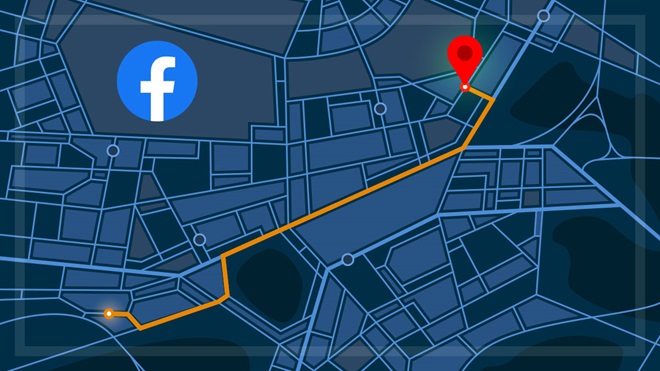Need to know
- Facebook tracks your location data, mostly for advertising purposes
- Location services, your IP address, and your online activity can all be used
- Third parties might also track you if you've linked your Facebook account to a separate app or service
The countless ways Facebook collects your data are still being uncovered by journalists and government bodies the world over.
Among the many data categories is location tracking and history. The places you go, your opinions on them and the things you buy or do there are all valuable information for advertisers.
If you’re curious about how much is known about you, you can request a download of the information Facebook has gathered on you over the years. We took a look at a single user profile activated in 2007 and received almost 7.5GB (gigabytes) across two files.
On this page:
- How Facebook tracks and collects your data
- Why Facebook tracks you
- Third-party interests
- How to control Facebook location tracking and permissions
How Facebook tracks and collects your data
Here are three ways Facebook tracks your location:
- Location services – This involves your phone or tablet's GPS coordinates, as well as Wi-Fi and cellular network locations.
- IP address – IP (internet) addresses give a vague idea of your whereabouts, sometimes down to the postcode. It's been confirmed that Facebook will estimate your location using your IP address, even if you opt out of location tracking.
- User activity – Facebook lets you check into venues or tag venues (for which it likely knows the street address and type of establishment) when you post. If you make a post and select that you are "with" someone else that Facebook knows the location of, then it will know your whereabouts by association. If you share where you live on Marketplace or respond to an event invitation, Facebook records this.
Facebook has also confirmed it partners with retailers via loyalty programs to track instore purchases.
Why Facebook tracks you
Despite what is commonly believed, Facebook doesn't sell your information to advertisers. Instead, advertisers approach Facebook (or vice versa) with a goal like "We want to reach women under 40 who enjoy skiing and are likely to buy products online".
If Facebook believes you fit into a category like this, you might see ads, articles or other content from that advertiser pop up in your feed or elsewhere on Facebook.
Your location helps build this profile on you in a few ways, including:
- If you've visited a store, venue or event recently and have given Facebook permission to track your phone, this could be taken as an indication of your interest in certain types of businesses, products, experiences or other factors such as political opinion or entertainment interests.
- If you click on or even view an ad online, then follow up by visiting a bricks-and-mortar location, Facebook can figure this out and give feedback to advertisers, letting them review the effectiveness of their advertising. It also confirms your interest in certain subjects and willingness to spend money on them. Facebook can gather this information partnering with loyalty programs and other payment-tracking services. It doesn't need your GPS location.
Third-party interests
If you've given an app or service access to your Facebook account, it might use your location information for its own purposes. Facebook claims to have put stricter guidelines in place to control this activity in recent years, but it's still a good idea to go into your account and see what apps are linked.
Delete anything you don't use or would prefer doesn't have access. Keep in mind if you use your Facebook account as a sign-in for an app or service, it will regain access the next time you log into it.
How to control Facebook location tracking and permissions
You can control how Facebook gathers and stores your location information – to a degree. We'll cover the main points, but we recommend exploring the settings and seeing what other options you'd like to adjust or disable.
Location services
To disable GPS, Wi-Fi and cellular network tracking and location history on a phone or tablet (iPhone, iPad or Android), open your Facebook app and tap the three horizontal bars. Tap to expand Settings & Privacy, then Settings.
In the search bar, type "Location" and select the result to control location services and history.
For the more privacy-conscious, perhaps an even safer method is to uninstall the app and access your account via your device's web browser.
IP tracking
Even if location tracking is disabled, your IP address might give you away. A VPN will fix this problem. Remember to only use a paid VPN service as free VPNs usually aren't worth the risk.
You could also use the free TOR browser for mobile, which hides your IP address in a similar way to a VPN, but is often much slower.
User activity
If you want to keep your movements private, avoid tagging yourself at specific venues or with other people, who themselves might be broadcasting their location.
Also disable facial recognition in your account settings, so your smiling face won't be automatically tagged in anyone else's photos.
Read more articles like this
We're on your side
For more than 60 years, we've been making a difference for Australian consumers. In that time, we've never taken ads or sponsorship.
Instead we're funded by members who value expert reviews and independent product testing.
With no self-interest behind our advice, you don't just buy smarter, you get the answers that you need.
You know without hesitation what's safe for you and your family.
And you'll never be alone when something goes wrong or a business treats you unfairly.
Learn more about CHOICE membership today
Stock images: Getty, unless otherwise stated.



